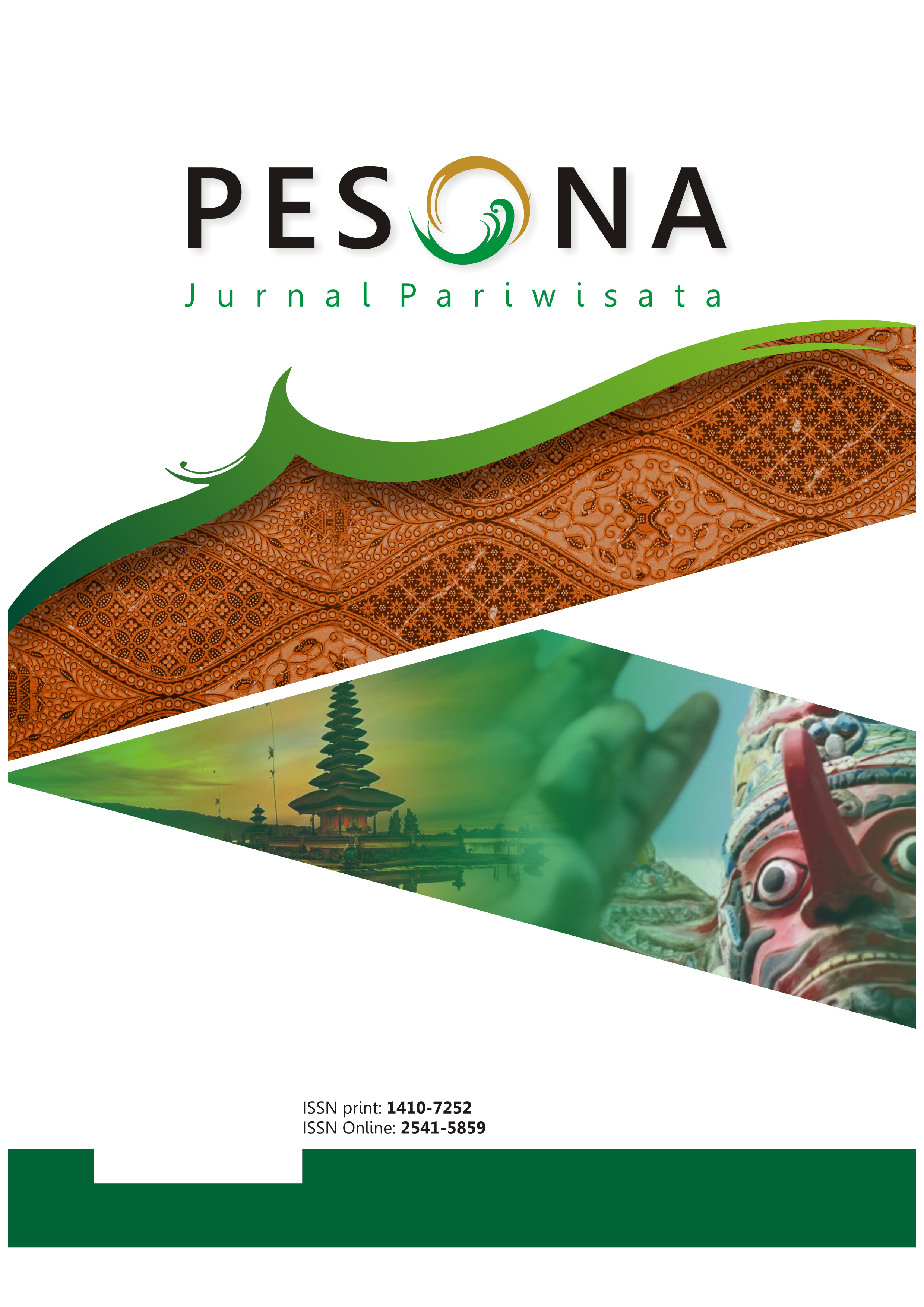Trust among millennial generation domestic travelers in staying at eco-friendly hotels
Keywords:
belief, intention to stay, millennial generationAbstract
This research aims to determine the beliefs of millennial domestic tourists regarding their intention to stay at an environmentally friendly hotel. The millennial generation is known as a group that has high sensitivity to social and environmental issues. Tourists' belief in environmentally friendly hotels is the belief that the hotel consistently implements policies and actions oriented towards environmental preservation, such as efficient resource management and reducing negative impacts on the environment. Consumer belief includes their perception of a hotel's commitment to implementing real sustainable practices and not just green marketing efforts. Intention to stay at an eco-friendly hotel is influenced not only by individual preferences, but also by the extent to which tourists believe that the hotel can meet their expectations. This research focuses on domestic tourists from the millennial generation, consisting of 100 respondents. Next, the data was analyzed using quantitative descriptive methods. The results of this research show that millennial generation domestic tourists believe that environmentally friendly hotels have high value and quality and have sustainable benefits. The intention of domestic tourists from the millennial generation is also very high. This means that high intention shows a sense of concern for environmentally friendly hotels that support sustainability and benefit the environment.
Downloads
References
Aliansyah, H. Hermawan, W. (2019). Peran Sektor Pariwisata Pada Pertumbuhan Ekonomi Kabupaten/Kota Di Jawa Barat. Bina Ekonomi. Vol. 23. No. 1
Badan Pusat Statistik. (2024). www.bps.go.id. Diakses 19 Agustus 2024
Chen, M.-F., & Tung, P.-J. (2014). Developing an extended theory of planned behavior model to predict consumers' intention to visit green hotels. International Journal of Hospitality Management, 36, 221-230
Chen, H. Bernard, S. Rahman, I. (2019). Greenwashing in hotels: A structural model of trust and behavioral intentions. Journal of Cleaner Production. Volume 206. Pages 326-335. ISSN 0959-6526,. https://doi.org/10.1016/j.jclepro.2018.09.168.
Fauzi. M.A. Hanafiah. M.Z. Kunjuraman. V. (2024). Tourists’ Intention To Visit Green Hotel: Building On The Theory Of Planned Behaviour And The Value Belief Norm Theory. Journal Of Tourism Futures. Emerald Publishing Limited. Vol. 10. No. 2. DOI 10.1108/JTF-01-2022-0008
Febriasari,P. Dharmmesta, B.S. (2019) Understanding Indonesian Travelers’ Intention To Stay At Green Hotel. Proceeding The 7th Gadjah Mada International Conference On economic And Business. https://www.researchgate.net/publication/336103572
Fishbein, M., Ajzen, I. (1975). Belif, Attitude, Intention and Behavior: An Introduction to Theory and Research. Reading, MA : Addison-Wesley
Garikapati. V. M, et al. (2016). Activity Patterns, Time Use and Travel of Millennials: A Generation In Transition?.Journal Transport Reviews, (5), 558-584
Gao, Y. (2022). Susitanable Tourism Among Millennials: From Awareness To Action. DOI:10.13140/RG.2.2.26744.37120
Han, H., Hsu, L.-T., & Lee, J.-S. (2009). Empirical investigation of the roles of attitudes toward green behaviors, overall image, gender, and age in hotel customers' eco-friendly decision-making process. International Journal of Hospitality Management, 28(4), 519-528
Mabkhot. H. (2024). Factors affecting millennials’ green purchase behavior: Evidence from Saudi Arabia, Heliyon, Volume 10. Issue ISSN 2405-8440. https://doi.org/10.1016/j.heliyon.2024.e25639.
Ogiemwonyi, O. (2022). Factors influencing generation Y green behaviour on green products in Nigeria: An application of theory of planned behaviour. Environmental and Sustainability Indicators. Volume 13. https://doi.org/10.1016/j.indic.2021.100164.
Rahman, I., & Reynolds, D. (2016). Predicting green hotel behavioral intentions using a theory of environmental commitment and sacrifice for the environment. International Journal of Hospitality Management, 52, 107-116.
Sharmin, F. Sultan, M.T. Badulescu, A. Bac, D.P. Li, B. (2020). Millennial Tourists’ Environmentally Sustainable Behavior Towards a Natural Protected Area: An Integrative Framework. Sustainability. 12. 8545. https://doi.org/10.3390/su12208545
Sugiyono. (2013). Cara Mudah Menyusun: Skripsi, Tesis, dan Disertasi. Bandung: Alfabeta
Sugiyono. 2015. Metode Penelitian Kuantitatif, Kualitatif, dan R&D. Bandung: Alfabeta
Teng, Y.-M., Wu, K.-S., & Liu, H.-H. (2015). Integrating altruism and the theory of planned behavior to predict patronage intention of a green hotel. Journal of Hospitality & Tourism Research, 39(3), 299-315
Wu. S. I., Chen. J. Y. (2014). A Model of Green Consumption Behavior Constructed by the Theory of Planned Behavior. International Jurnal of Marketing Studies. Vol. 6 No. 5. Pp. 119-132
Downloads
Published
How to Cite
Issue
Section
License
Copyright (c) 2025 Jurnal Pariwisata Pesona

This work is licensed under a Creative Commons Attribution-ShareAlike 4.0 International License.

This work is licensed under a Creative Commons Attribution-ShareAlike 4.0 International License.



